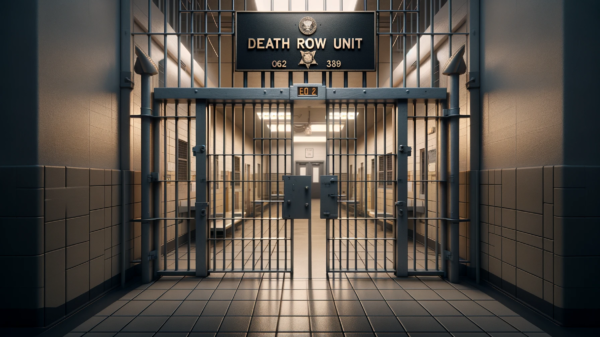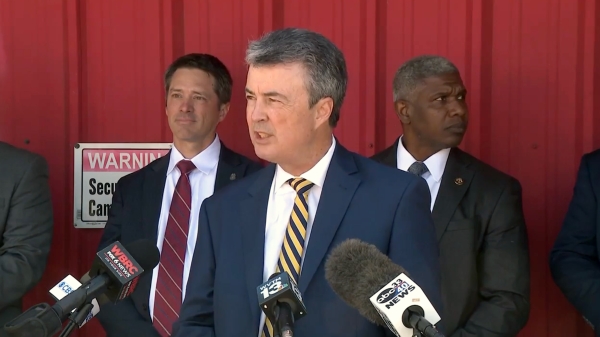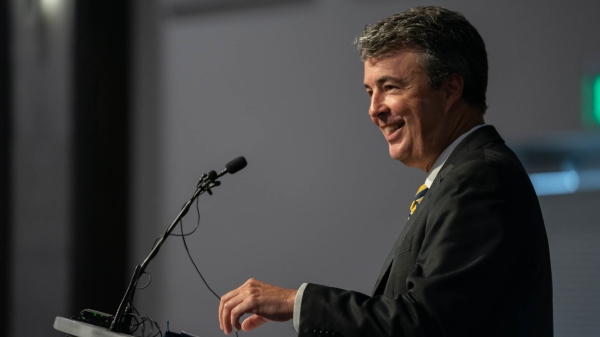By Brandon Moseley
Alabama Political Reporter
Prominent Birmingham criminal defense attorney Richard S Jaffe is asking Alabama Governor Robert Bentley to pardon the Scottsboro boys who remain unpardoned. Mr. Jaffe is part of a team of lawyers who are working on pardons for the Scottsboro boys who still have this rape conviction on their Alabama criminal records. Jaffe agreed to be interviewed by ‘The Alabama Political Reporter.’
In 1931, nine black boys (the youngest was 13 at the time) were hastily convicted in Scottsboro, Alabama of gang raping two white girls (Victoria Price and Ruby Bates) aboard a freight train and sentenced to death by electrocution. The absurd manner in which the trial was conducted drew national attention for the callous disregard of any notion of a fair trial. The boys were indicted by the grand jury just five days after their arrests. The trial convened seven days later and 8 or the 9 were convicted the next day (the case of the 9th ended in a mistrial). The defendants were later re-tried in Decatur and again convicted, even though one of the victims (Ruby Bates) later recanted her story and admitted perjury. None of the boys were ever executed although they endured years in the then very harsh world of the Alabama prison system. Legal scholars agree that the boys likely were not guilty of the charges and clearly the trials were not fair by any standards.
Mr. Jaffe said that he, “along other organizations and individuals”, are asking Governor Bentley to pardon the Scottsboro boys who were not already pardoned during their lifetimes. Richard Jaffe said, “It should have been done a long time ago.” “It’s never too late to correct an injustice.” “I cannot imagine the state of Alabama not wanting to right a wrong and correct what is obviously a horrific injustice.” Jaffe said that one of the nine, Clarence Norris, was pardoned by former Alabama Governor George C Wallace in 1976. Jaffe said that he did not know why Wallace did not pardon the other eight then.
Even though these events occurred over 70 years ago, Jaffe said, “If you believe there is a miscarriage of justice it is never too late.”
‘The Alabama Political Reporter’ asked Mr. Jaffe if a jury would likely convict nine black defendants accused of rape by two white girls today under similar circumstances. Mr. Jaffe said of the case, “I just don’t think they could be convicted by any jury today.” Jaffe said that even with the standards of the day there was no forensic evidence whatsoever that the two girls had been gang raped by the nine defendants. “The stories of the victims were too incomprehensible and too unbelievable for any jury to convict today.” Jaffe said that they would not be convicted today, but in the 1930s for a black man to be accused of rape by a white woman was an “automatic conviction.”
‘The Alabama Political Reporter’ asked if any white man in Alabama had been convicted prior to 1960 of raping a black woman. Jaffe said, “I doubt it.”
After the boys were convicted a leftist labor organization (the International Labor Defense) brought attention to the plight of the nine black boys on Alabama’s death row and hired out of state counsel for the nine. We asked Jaffe if the Communists saved the boys. Jaffe said, “We have to say that there were communist overtones” to the subsequent retrials; but Jaffe said that society was not as anti-communist in the 1930s as opposed to the 1950s. Jaffe said that one could argue that the legal services provided both helped and hurt the case. The attorneys from out of state were seen as aliens by the Alabama public at the time and that hurt the boys. The labor party helped bring worldwide attention to the case and the lawyer they hired, Samuel Leibowitz was excellent. An attorney from Huntsville did assist Leibowitz’s defense in the retrials.
Jaffe said today in something similar it would take a team of lawyers and in a modern court system the nine defendants would not be tried as a group. Jaffe said, “I am not sure that any one attorney could have represented all 9 defendants .” The appeals went all the way to the U.S. Supreme Court which ruled that the Alabama Court System had illegally prevented from serving on the Grand Jury which returned the indictments, making history in that ruling.
Mr. Jaffe said that the Scottsboro case is, “More of a blemish on the entire state” than it is a shame for the town of Scottsboro. Jaffe said, “The same result would have occurred anywhere in the state of Alabama at the time.”Governor Bentley has questioned if he even has the authority to pardon people after they are dead. Jaffe said that in the process of their research they believe that the Governor does have the authority to pardon the eight Scottsboro boys. Jaffe said that the Governor would certainly have a great deal of influence in the case.
‘The Alabama Political Reporter’ asked if the team could just go around the Governor and appeal to the President of the United States, Barack H. Obama. Jaffe said, “I have never thought about it (a Presidential Pardon).” Jaffe said that asking the President to pardon persons convicted by the state courts might would violate the concept of federalism.
‘The Alabama Political Reporter’ asked: How incompetent was the original defense by Milo Moody and Stephen Roddy? Jaffe said, “That wasn’t a defense. They weren’t Atticus Finch (fictional attorney in ‘Too Kill a Mockingbird).” Jaffe said that the defense attorneys needed to take statements, needed to take photographs, and should have demanded more time to prepare a case before going to trial. In the trial the questions they asked, “were not searching cross examinations.” Jaffe did say however that the defense attorneys were under a lot of pressure. “There was a lot of fear in there. It was a very intimidating atmosphere.” The day after the arrests the Sheriff faced a large armed mob of over 100 who had threatened to storm the jail and lynch the 9 without waiting for any trial.’The Alabama Political Reporter’ asked just how powerful was the the Klu Klux Klan in Alabama in the 1930s. Mr. Jaffe said,
“The Klu Klux Klan was very very powerful in Alabama (as well as many other states in the 1930s).” Almost anyone who hoped to have some political influence had some connection to the Klan in the 1930s.” Even Hugo Black who became a U.S. Supreme Court Justice had Klu Klux Klan ties at the time.
Richard Jaffe is the author of “Quest for Justice: Defending the Damned.” Jaffe said his book is about wrongly accused people being convicted and sentenced to death. It is also a book about the death penalty. “Most people who read it say that they can’t put it down. The book reads like fiction, but it is all true.” Jaffe is the only American lawyer to have served as lead trial counsel in three exonerations of previously convicted death row inmates. The book can be found at Barnes & Nobles, Amazon, Books a Million, Wal-Mart, and is available in hard copy or as an e-book.
To learn more about Jaffe’s book visit the website:
http://www.questforjusticethebook.com/
To learn more about the Scottsboro boys case visit the website:
http://law2.umkc.edu/faculty/projects/ftrials/scottsboro/scottsb.htm



















































